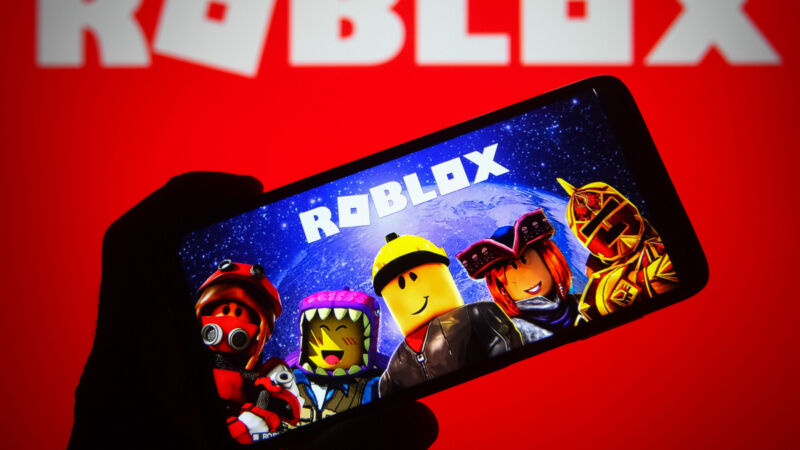
On Friday, Roblox announced plans to introduce an open source generative AI tool that will allow game creators to build 3D environments and objects using text prompts, reports MIT Tech Review. The feature, which is still under development, may streamline the process of creating game worlds on the popular online platform, potentially opening up more aspects of game creation to those without extensive 3D design skills.
Roblox has not announced a specific launch date for the new AI tool, which is based on what it calls a “3D foundational model.” The company shared a demo video of the tool where a user types, “create a race track,” then “make the scenery a desert,” and the AI model creates a corresponding model in the proper environment.
The system will also reportedly let users make modifications, such as changing the time of day or swapping out entire landscapes, and Roblox says the multimodal AI model will ultimately accept video and 3D prompts, not just text.
The 3D environment generator is part of Roblox’s broader AI integration strategy. The company reportedly uses around 250 AI models across its platform, including one that monitors voice chat in real time to enforce content moderation, which is not always popular with players.
Next-token prediction in 3D
Roblox’s 3D foundational model approach involves a custom next-token prediction model—a foundation not unlike the large language models (LLMs) that power ChatGPT. Tokens are fragments of text data that LLMs use to process information. Roblox’s system “tokenizes” 3D blocks by treating each block as a numerical unit, which allows the AI model to predict the most likely next structural 3D element in a sequence. In aggregate, the technique can build entire objects or scenery.
Anupam Singh, vice president of AI and growth engineering at Roblox, told MIT Tech Review about the challenges in developing the technology. “Finding high-quality 3D information is difficult,” Singh said. “Even if you get all the data sets that you would think of, being able to predict the next cube requires it to have literally three dimensions, X, Y, and Z.”
According to Singh, lack of 3D training data can create glitches in the results, like a dog with too many legs. To get around this, Roblox is using a second AI model as a kind of visual moderator to catch the mistakes and reject them until the proper 3D element appears. Through iteration and trial and error, the first AI model can create the proper 3D structure.
Notably, Roblox plans to open-source its 3D foundation model, allowing developers and even competitors to use and modify it. But it’s not just about giving back—open source can be a two-way street. Choosing an open source approach could also allow the company to utilize knowledge from AI developers if they contribute to the project and improve it over time.
The ongoing quest to capture gaming revenue
News of the new 3D foundational model arrived at the 10th annual Roblox Developers Conference in San Jose, California, where the company also announced an ambitious goal to capture 10 percent of global gaming content revenue through the Roblox ecosystem, and the introduction of “Party,” a new feature designed to facilitate easier group play among friends.
In March 2023, we detailed Roblox’s early foray into AI-powered game development tools, as revealed at the Game Developers Conference. The tools included a Code Assist beta for generating simple Lua functions from text descriptions, and a Material Generator for creating 2D surfaces with associated texture maps.
At the time, Roblox Studio head Stef Corazza described these as initial steps toward “democratizing” game creation with plans for AI systems that are now coming to fruition. The 2023 tools focused on discrete tasks like code snippets and 2D textures, laying the groundwork for the more comprehensive 3D foundational model announced at this year’s Roblox Developer’s Conference.
The upcoming AI tool could potentially streamline content creation on the platform, possibly accelerating Roblox’s path toward its revenue goal. “We see a powerful future where Roblox experiences will have extensive generative AI capabilities to power real-time creation integrated with gameplay,” Roblox said in a statement. “We’ll provide these capabilities in a resource-efficient way, so we can make them available to everyone on the platform.”

